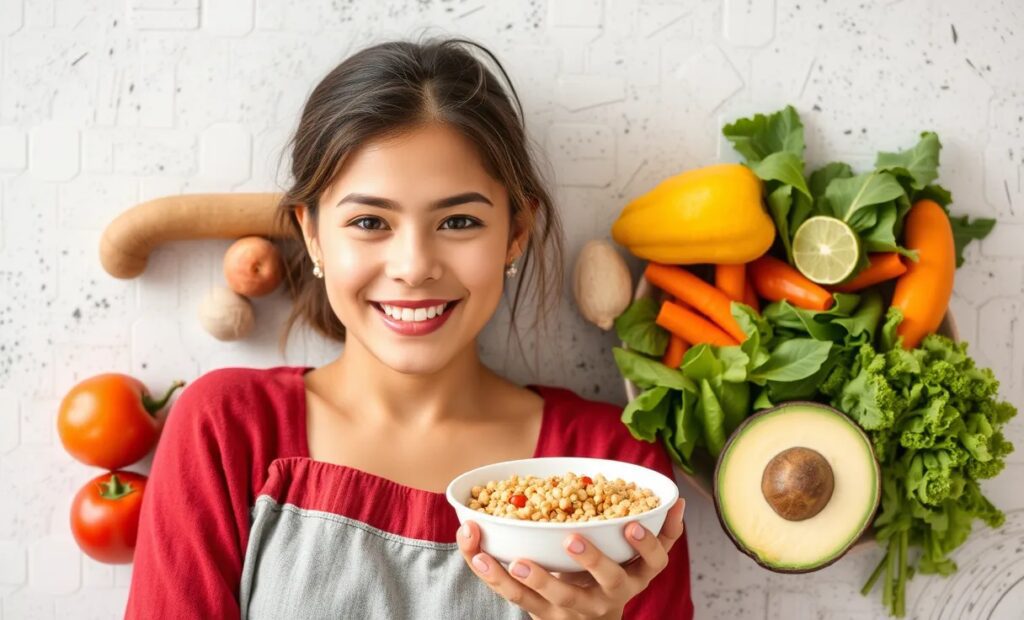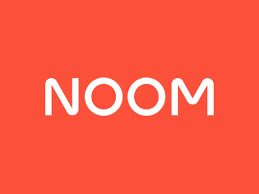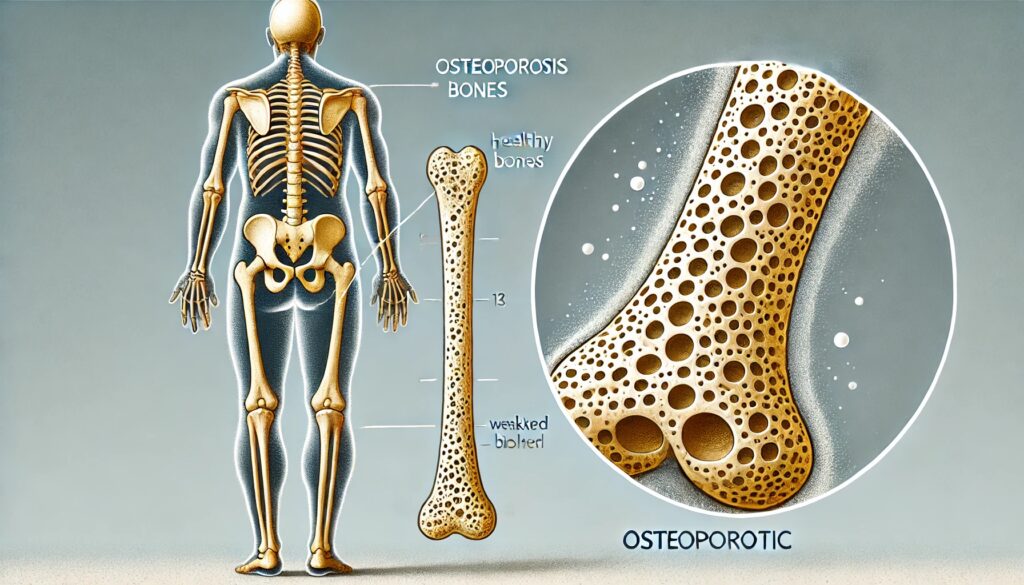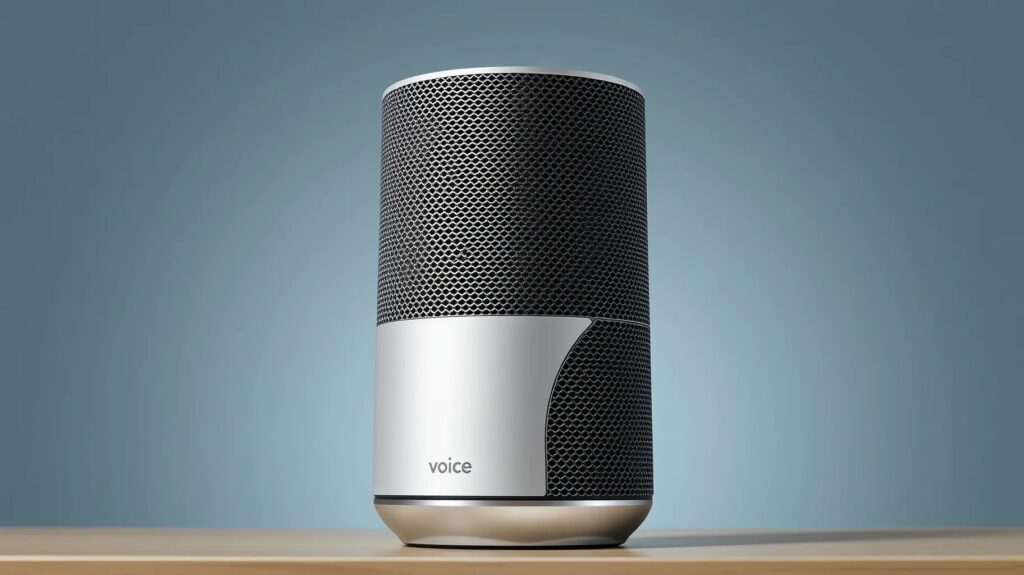
AI is transforming how we approach diet coaching. By personalizing nutrition plans, tracking progress, and offering real-time insights, AI is making smarter eating accessible to everyone.
Whether you’re aiming to lose weight, boost energy, or manage a medical condition, AI tools are revolutionizing the game.
How AI Is Reshaping Diet Coaching
The Basics: What Makes AI a Nutrition Powerhouse?
AI combines machine learning algorithms and data analysis to understand individual dietary needs. Unlike traditional one-size-fits-all approaches, it uses inputs like your age, activity level, and health goals to craft tailored recommendations.
- Dynamic Learning: AI systems adapt as your body and habits change.
- Data-Driven Insights: Apps analyze food logs, wearable data, and biomarkers to fine-tune advice.
- Accessibility: These tools are available 24/7, making expert-level coaching more affordable and scalable.
Breaking the One-Size-Fits-All Myth
Standard diets often fail because they ignore unique factors like metabolism, allergies, or cultural food preferences. AI flips the script by delivering hyper-personalized plans.
- Algorithms analyze genetics to predict how you metabolize fats, carbs, and proteins.
- AI detects patterns in your food choices to suggest alternatives you’ll actually enjoy.
- Ongoing feedback ensures that plans evolve with your preferences and progress.
Real-Time Feedback: The Key to Long-Term Success
With AI, you can get real-time feedback on your meals, activity, and even hydration levels. No need to wait for a nutritionist appointment—your digital coach is always on.
- Instant Analysis: Snap a photo of your meal, and AI tools can break down its nutritional profile.
- Continuous Support: Apps like MyFitnessPal or Foodvisor monitor and guide your daily intake.
- Motivation on Demand: Friendly nudges help keep you on track when cravings hit.
Tools and Technologies Leading the Charge
Top AI-Powered Apps Revolutionizing Nutrition
AI-powered apps are bridging the gap between cutting-edge science and everyday convenience. Here are some that stand out:
- NutriSense: Focuses on glucose monitoring to optimize energy and weight management.
- Lumen: Analyzes your metabolism through breath analysis to offer tailored meal suggestions.
- FitGenie: Combines machine learning with flexible diet plans, making adjustments as you progress.
These tools are packed with features to simplify nutrition tracking, enhance accountability, and even foster a sense of community through challenges and rewards.
Wearables: AI Meets Smart Gadgets
Smart gadgets like fitness trackers and biosensors are essential companions to AI diet coaching. By collecting granular data, they give a comprehensive view of your health.
- Smartwatches track calories burned and activity levels.
- Continuous glucose monitors (CGMs) like FreeStyle Libre pair with apps for metabolic insights.
- AI-integrated scales provide detailed body composition metrics.
Each of these devices feeds into AI systems, offering real-time adjustments and personalized tips.
How AI Tracks Progress and Optimizes Nutrition

Tracking progress has always been a cornerstone of successful dieting, but AI-powered tools take it to the next level. These systems analyze data continuously, ensuring you stay on track and adjust when needed.
AI as Your Personal Progress Tracker
AI apps and wearables gather data from multiple sources to paint a full picture of your health journey.
- Meal Logs: Tools like MyFitnessPal analyze the nutritional content of what you eat daily.
- Exercise Integration: Apps sync with fitness trackers to account for calories burned and muscle recovery.
- Habit Insights: By identifying patterns, AI highlights what’s working—and what isn’t.
For example, if your weight loss plateaus, the AI might suggest tweaking your macronutrient balance or increasing activity levels.
Advanced Metrics: Beyond Just Calories
Gone are the days of calorie counting alone. AI dives into more complex metrics to tailor advice to your needs.
- Blood Sugar Monitoring: Apps integrated with CGMs track fluctuations to optimize meal timing.
- Micronutrient Balancing: AI identifies deficiencies in vitamins or minerals and suggests foods to address them.
- Metabolic Health Scores: Tools like Lumen provide real-time feedback on fat and carb burning.
These deeper insights allow users to make informed decisions based on real data, not guesswork.
The Power of Gamification
Staying motivated can be tough, but AI-driven tools often use gamification techniques to make it fun.
- Daily Challenges: Complete small goals like eating a balanced breakfast for points.
- Streaks and Rewards: Maintain consistency to unlock badges or discounts on healthy foods.
- Social Features: Compete with friends or join community challenges for added accountability.
With these engaging features, sticking to a plan feels less like a chore and more like a game.
AI and Predictive Insights: Staying Ahead of Plateaus

Plateaus can be frustrating, but AI tools use predictive analytics to help you sidestep stagnation.
Anticipating Barriers Before They Happen
AI predicts potential roadblocks by analyzing patterns in your data.
- Meal Timing Optimization: Suggests the best times to eat based on activity levels.
- Stress Responses: Alerts you when stress levels are impacting food choices or metabolism.
- Sleep Quality Impacts: Highlights how poor sleep affects hunger hormones like ghrelin.
With these insights, you can take proactive steps to stay on course.
Dynamic Adjustments for Sustainable Results
Unlike static diet plans, AI-powered coaching evolves. It recommends adjustments based on real-time feedback, ensuring your plan remains effective.
- Seasonal Updates: Suggests foods that align with the season for better nutrient availability.
- Cultural Preferences: Adapts plans to incorporate traditional dishes or family favorites.
- Goal Shifts: Refines strategies if your focus changes from weight loss to muscle gain.
This flexibility ensures that your diet plan feels less restrictive and more sustainable in the long run.
Real-World Example: Noom – The AI-Powered Behavioral Diet Coach
One standout example of AI in diet coaching is Noom, a health app that combines AI algorithms with psychological principles to help users achieve their weight loss and wellness goals.

How Noom Uses AI for Personalization
Noom starts by collecting user data through an initial survey. It asks about your age, weight, activity levels, food preferences, and specific health goals. This information is analyzed by AI to create a custom plan tailored to your needs.
- Meal Recommendations: Based on your habits and goals, Noom suggests meals that balance nutrition with enjoyment.
- Activity Coaching: Syncs with wearables to track exercise and adjusts calorie budgets dynamically.
- Behavioral Nudges: Provides daily insights and motivational messages to reinforce healthy habits.
The AI in Action
Noom’s AI adapts over time. For instance:
- If you consistently log higher-calorie foods, it suggests lower-calorie swaps.
- If your weight loss plateaus, it adjusts your calorie target or focuses on new habits like mindful eating.
- It tracks trends in your data (like skipped breakfasts) and nudges you to refocus.
Why Noom Stands Out
- Real-Time Feedback: AI provides immediate responses based on food logs and activity.
- Gamification: Encourages streaks and rewards small wins to keep users engaged.
- Scalable Support: Unlike a traditional coach, Noom’s AI can assist millions of users simultaneously.
Impact
Noom has been clinically proven to help with weight loss, with studies showing sustained results even after users stop actively using the app. By combining AI’s analytical power with behavioral coaching, Noom exemplifies how technology can personalize nutrition for real-world success.
For more, you can visit Noom’s official site.
Future Trends in AI for Nutrition
As technology evolves, so does the potential for AI in diet coaching. The future promises even greater personalization, integration, and ethical considerations, making nutrition smarter and more inclusive.
AI-Powered Genomics: The Ultimate Personalization
One of the most exciting frontiers is the integration of genomics and AI. By analyzing your DNA, AI tools can uncover genetic predispositions that affect your diet and health.
- Metabolism Insights: Discover how your body processes carbs, fats, and proteins.
- Food Sensitivities: Identify genetic markers for lactose intolerance or gluten sensitivity.
- Fitness Optimization: Uncover genes linked to muscle performance or endurance.
This hyper-personal approach means your nutrition plan is built on a foundation of your unique biology, leaving guesswork behind.
Augmented Reality in Food Choices
Imagine walking into a grocery store and using your phone or glasses to scan foods for real-time recommendations.
- Nutritional Overlays: See calorie, macronutrient, and micronutrient information instantly.
- AI-Driven Shopping Lists: Generate lists based on your goals and dietary restrictions.
- Sustainable Choices: Get tips on environmentally friendly or locally sourced alternatives.
This blend of augmented reality (AR) and AI transforms the shopping experience, making informed choices effortless.
Ethical Considerations in AI Nutrition
As with any technology, ethical issues must be addressed to ensure fairness and safety.
- Data Privacy: Users must trust that their sensitive health data is secure and not sold to third parties.
- Bias in Algorithms: Developers must ensure that AI recommendations account for cultural, economic, and regional diversity.
- Accessibility: Efforts should be made to make these tools affordable and inclusive, bridging the gap for underserved populations.
By prioritizing ethics, we can harness the full potential of AI while ensuring equitable benefits.
AI-Driven Gut Health: The Next Big Focus
The microbiome—your gut’s ecosystem—is gaining recognition for its role in overall health. AI tools are now beginning to incorporate microbiome insights into diet coaching.
- Gut Testing Kits: Analyze your gut bacteria and receive personalized dietary advice.
- Probiotic Recommendations: AI identifies the best probiotics to support your unique microbiome.
- Symptom Tracking: Link foods to digestive symptoms for smarter eating.
With these advancements, gut health will become an integral part of personalized nutrition.
Virtual Nutrition Coaches: Human-Like AI Support
Future AI systems could mimic human nutritionists more closely, offering emotional support and nuanced guidance.
- Voice Assistants: Chatbots could hold conversations to keep you motivated.
- Emotional Intelligence: AI could detect your mood and adjust its tone or advice accordingly.
- 24/7 Availability: Get guidance whenever you need it, without waiting for an appointment.
These virtual coaches could make professional-level advice universally accessible, empowering individuals to take control of their health.
By combining advanced science, practical tools, and a commitment to inclusivity, AI in diet coaching is set to redefine how we approach nutrition. It’s not just about eating smarter—it’s about living healthier, longer, and more balanced lives.
FAQs
How does AI personalize nutrition plans?
AI personalizes nutrition plans by analyzing individual data, such as age, weight, activity levels, and even genetic markers. For example, an app like Lumen measures your metabolism daily through a simple breath analysis and adjusts your macronutrient goals accordingly. This level of personalization helps you avoid generic advice and focus on what works for your body.
Can AI handle complex dietary needs or medical conditions?
Yes, many AI tools are equipped to handle specific requirements like diabetes, gluten intolerance, or heart health. For instance, NutriSense uses continuous glucose monitoring (CGM) to offer real-time feedback, suggesting foods that stabilize your blood sugar. Similarly, apps like Spoon Guru filter recipes and meal ideas based on allergens or medical restrictions.
How accurate are AI diet recommendations?
AI recommendations are generally reliable, as they are based on a combination of evidence-based research and real-time data. However, results depend on the quality of the input. For instance, apps like MyFitnessPal require accurate food logging to generate meaningful feedback. While AI isn’t perfect, it’s an excellent tool for guidance when paired with human judgment.
Are AI diet coaching apps suitable for beginners?
Absolutely! Many apps are beginner-friendly, offering step-by-step guidance. For instance, Noom focuses on behavioral psychology to build healthier eating habits and provides daily lessons that are easy to understand. Beginners often appreciate the instant feedback and motivational features these tools provide.
Is AI a replacement for human nutritionists?
AI complements but doesn’t fully replace human expertise. It’s great for day-to-day guidance and tracking, but complex cases might still require a human touch. For example, an app like FitGenie can adjust your diet plan weekly based on progress, but a dietitian might be necessary for in-depth analysis of medical issues.
How affordable are AI diet coaching tools?
AI-powered diet coaching is generally more affordable than traditional nutritionists. Apps like MyFitnessPal offer free versions with basic tracking, while more advanced tools like NutriSense may require subscriptions or device purchases. The cost-effectiveness makes AI accessible to a broader audience.
What about privacy concerns with AI diet apps?
Reputable apps take privacy seriously and comply with data protection laws like GDPR. For example, Cronometer allows users to control their data and even opt for offline mode. Always check the privacy policy before signing up to ensure your personal information is secure.
Can AI help with food cravings or emotional eating?
Yes, some AI tools include features to manage cravings or emotional eating. Noom, for instance, teaches users to identify triggers for overeating and offers practical strategies to cope, like mindfulness exercises or alternative snack suggestions. These tools aim to create lasting behavioral change.
How does AI ensure ongoing success after reaching a goal?
AI tools are designed for long-term success by promoting sustainable habits. For example, Habitica gamifies habit-building to make it fun to stick with your plan even after reaching your goal. AI systems often evolve with you, suggesting new challenges or adjustments to maintain progress over time.
Can AI help identify food sensitivities or allergies?
While AI itself doesn’t diagnose allergies, some tools analyze patterns in your diet and symptoms to provide insights. For example, apps like FoodMarble use breath tests to detect sensitivities to lactose or other fermentable foods. These insights can guide you to make better choices and consult a doctor if necessary.
Do AI diet coaching tools work without wearable devices?
Yes, many AI diet coaching tools work without wearables. Apps like Yazio and Cronometer rely on manual food and activity logging. However, pairing them with wearables like Fitbit or Apple Watch enhances their functionality by automating data collection for metrics like calories burned or steps taken.
Can AI help with specific cultural or regional diets?
Yes, AI-powered apps increasingly cater to diverse dietary needs. For example, HealthifyMe specializes in creating personalized plans that include regional cuisines, such as Indian or Mediterranean dishes. By recognizing cultural preferences, AI ensures that meal plans are both effective and enjoyable.
How does AI track progress without constant manual input?
Many AI tools use automation and integration with other devices to reduce manual input. For instance, Lose It! syncs with your phone’s camera to estimate portion sizes and nutritional content. Similarly, AI-integrated scales and smart fridges automatically update progress in your app, making tracking seamless.
What if my diet goals change over time?
AI adapts to evolving goals with dynamic adjustments. For example, if you shift from weight loss to muscle gain, apps like FitGenie recalibrate your caloric intake and macronutrient ratios to align with your new objectives. This ensures that the guidance you receive remains relevant.
Are there AI tools specifically for vegetarians or vegans?
Yes, many AI tools focus on plant-based diets. Forks Over Knives Meal Planner is an app designed for vegans, offering personalized meal plans based on whole, plant-based foods. It even generates shopping lists and suggests plant-based substitutes for commonly used ingredients.
Can AI predict how my body will respond to certain foods?
Yes, some advanced AI tools use biomarkers or genomic data to predict how your body responds to specific foods. For instance, ZOE analyzes your gut microbiome, blood sugar, and blood fat responses to determine which foods suit you best. These predictions make it easier to avoid foods that hinder progress.
How do AI tools handle hydration and non-food factors?
AI tools like WaterMinder track your hydration levels based on your activity, weight, and weather conditions. Comprehensive apps such as MyFitnessPal include hydration tracking alongside food logging, ensuring you’re meeting all aspects of your health goals.
Can AI coach kids or teens on healthy eating?
Yes, some tools are designed with younger users in mind. Apps like Kurbo by WW (formerly Weight Watchers) focus on teaching kids and teens about balanced eating through fun, age-appropriate methods like games and colorful charts. These AI tools emphasize education and empowerment over calorie counting.
What role does AI play in meal prepping?
AI excels at simplifying meal prep. Apps like Mealime generate meal plans based on your preferences, health goals, and what’s already in your pantry. It can even sync with grocery delivery services, saving time and reducing food waste by ensuring you only buy what you need.
How does AI handle eating out or dining at restaurants?
AI tools like Foodvisor and Lose It! make eating out easier by analyzing restaurant menus or meal photos. Simply snap a picture of your dish, and the app estimates its nutritional content. Some apps even have databases of popular restaurants to suggest healthier options before you order.
Can AI recommend alternatives for unhealthy cravings?
Yes, AI tools excel at offering healthier swaps for cravings. For example, if you’re logging snacks like chips or cookies, apps like Yummly suggest alternatives such as baked veggie chips or dark chocolate. These tools use your past preferences to suggest options you’re likely to enjoy.
Are AI diet coaching tools safe during pregnancy?
While AI can provide general guidance for nutrition during pregnancy, apps like Ovia Pregnancy specialize in meeting the unique needs of expectant mothers. They track dietary intake, suggest nutrient-rich meals, and remind users about important nutrients like folic acid and iron. It’s always best to consult a healthcare provider alongside using these tools.
Can AI help with intermittent fasting?
Yes, apps like Zero and FastHabit use AI to support intermittent fasting. They track fasting and eating windows, provide reminders, and analyze patterns to optimize fasting results. Over time, AI tailors its suggestions to help you manage hunger and maximize benefits like fat loss and energy levels.
How does AI accommodate emotional eating triggers?
AI tools like Noom incorporate behavioral science to address emotional eating. For instance, the app might notice patterns in your food logging—like increased intake during stressful periods—and suggest mindfulness techniques, stress management tips, or low-calorie comfort food alternatives.
Can AI help people build cooking skills?
Yes, AI-powered tools like SideChef and Tasty help users improve their cooking abilities. They offer step-by-step instructions for recipes tailored to your dietary needs, complete with video tutorials. Some apps even suggest beginner-friendly dishes to build confidence in the kitchen.
How does AI ensure sustainable, eco-friendly eating habits?
Some AI tools focus on sustainability by recommending plant-based or low-carbon footprint foods. Apps like Kuri factor in the environmental impact of your choices, suggesting eco-friendly substitutes or seasonal produce. This makes it easy to align your diet with environmental values.
Can AI monitor food waste in meal planning?
Yes, AI can help reduce food waste. For instance, Plant Jammer suggests recipes based on what’s already in your pantry, ensuring unused ingredients don’t go to waste. By integrating inventory management with meal planning, these tools help you save money and cut down on waste.
How do AI tools support long-term weight maintenance?
AI tools like MyFitnessPal or FitGenie are designed for long-term use, providing evolving recommendations to prevent weight regain. They use your data trends to predict when you’re veering off track and offer suggestions, like adjusting portion sizes or reintroducing physical activity goals.
Can AI handle nutrition for athletes or high-performance goals?
Absolutely! Apps like Athlytic and Chronometer cater to athletes by optimizing macronutrient intake for endurance, strength, or recovery. These tools sync with fitness wearables to ensure precise tracking of calories burned, protein needs, and hydration levels, making them ideal for high-performance goals.
Are AI diet coaching tools effective for managing chronic conditions?
Yes, AI tools like CareClinic are specifically tailored for chronic conditions such as diabetes or hypertension. They monitor relevant metrics, such as blood sugar or sodium intake, and offer actionable advice to stay within safe limits. This makes managing complex health conditions more manageable and less overwhelming.
Can AI help with portion control?
Yes, many AI tools focus on portion control through innovative methods. For instance, Foodvisor uses AI to analyze meal photos and estimate portion sizes and nutritional breakdowns. Apps like PlateJoy also guide users in pre-portioning ingredients during meal prep, making it easier to stick to recommended serving sizes.
How does AI assist with meal planning for families?
AI simplifies family meal planning by accommodating multiple dietary needs. Apps like eMeals let you input preferences for each family member—such as vegetarian for one and high-protein for another—and create unified meal plans. Some even integrate grocery lists and delivery services to save time.
Can AI support specific fitness goals like bodybuilding or endurance training?
Yes, AI-powered apps like FitGenie or Strongr Fastr cater to fitness enthusiasts. These tools recommend protein-heavy meals for muscle gain or high-carb diets for endurance events. They also sync with workout plans, ensuring your nutrition aligns with your training schedule.
Do AI diet tools offer cultural inclusivity in meal plans?
Many apps now include culturally diverse recipes and plans. For example, Whisk allows users to explore recipes from different cuisines and adapt them to dietary restrictions. This inclusivity ensures that AI nutrition plans resonate with people from various backgrounds and traditions.
How does AI help manage time for meal prepping?
AI tools like MealPrepPro optimize meal prep by generating weekly plans with step-by-step instructions and batch cooking strategies. They can suggest recipes requiring minimal prep time and align shopping lists with the ingredients needed, reducing guesswork and saving time.
Can AI tools handle grocery shopping?
Yes, many apps streamline grocery shopping. For instance, Yummly connects your meal plan directly to online grocery stores, allowing you to order ingredients with a click. Some tools even consider your pantry inventory, suggesting only the items you need to complete meals.
How do AI diet apps support seasonal eating?
AI-powered apps like Seasonal Food Guide recommend recipes and meal plans based on what’s fresh and locally available. Seasonal eating ensures better flavor, higher nutritional content, and reduced environmental impact due to shorter transport distances.
Can AI address eating disorders or disordered eating habits?
While AI isn’t a substitute for professional therapy, some apps like Recovery Record are designed to support people managing eating disorders. These tools provide food journaling, mood tracking, and prompts to connect with therapists or caregivers, promoting mindfulness and recovery.
How do AI tools handle budget-friendly meal planning?
Budget-conscious apps like Mealime and Budget Bytes use AI to suggest cost-effective recipes and track expenses. They optimize meal plans by reusing ingredients across multiple recipes, ensuring you maximize what you buy while reducing waste.
Are AI tools helpful for people who don’t like to cook?
Yes, AI accommodates users who prefer minimal cooking or none at all. Apps like Eat This Much generate meal plans including ready-to-eat options or recipes requiring little preparation. Some tools also suggest meal delivery services or grab-and-go meals tailored to your dietary goals.
Can AI help with post-diet weight maintenance?
Absolutely. Tools like Noom focus heavily on building long-term habits for maintaining results. AI analyzes your patterns to identify when you’re slipping into old habits, providing timely suggestions to re-center your focus, such as revisiting portion control or increasing physical activity.
Do AI tools work offline?
Some apps, like Cronometer, offer offline modes for logging food and activity when you’re disconnected. While features like real-time syncing or external device integration may require an internet connection, these offline capabilities ensure usability on the go.
How do AI tools ensure meals are nutritionally balanced?
AI evaluates macronutrients (carbs, fats, and proteins) and micronutrients (vitamins, minerals) in your meals. For example, MyPlate by Livestrong visually breaks down your daily intake to show whether you’re meeting recommended guidelines. This makes it easy to balance meals across the day.
Can AI help seniors with nutrition?
Yes, AI tools like EatWell are designed for older adults. They focus on nutrient-dense meals, hydration reminders, and recipes that are easy to prepare and digest. These tools also consider conditions common in seniors, such as osteoporosis or heart disease, tailoring their recommendations accordingly.
How do AI apps keep users engaged over time?
AI tools use gamification, personalized reminders, and progress visualizations to sustain engagement. For instance, Noom combines educational mini-lessons with motivational prompts, while apps like Habitica turn habit-building into a fun, RPG-style game, rewarding users for staying consistent.
Resources for Exploring AI in Diet Coaching
Whether you’re new to AI-powered diet tools or looking to deepen your understanding, the following resources can help:
Articles and Guides
- How AI is Revolutionizing Nutrition – Healthline offers an overview of how AI is being applied to create smarter, personalized diets.
- The Role of AI in Personalized Nutrition – A deep dive into the science of AI-driven nutrition planning from Nature Medicine.
- Top Apps for AI-Powered Nutrition – A curated list of the best apps using AI to help users achieve dietary goals.
Books
- “Eat Smarter” by Shawn Stevenson – Although not focused solely on AI, this book dives into how technology and smarter habits can optimize your nutrition.
- “Deep Medicine” by Eric Topol – Explores how AI is reshaping various fields, including healthcare and diet coaching.
Tools and Apps
- MyFitnessPal – A versatile app for tracking food and exercise, enhanced with AI-driven insights.
- NutriSense – Offers real-time glucose monitoring paired with AI recommendations for improving diet and metabolism.
- Yummly – An intelligent recipe app that adapts suggestions based on your goals and preferences.
- Zero – AI-powered fasting app with insights to optimize intermittent fasting schedules.
Research and Journals
- Journal of Personalized Medicine – Features articles on personalized nutrition, including AI applications.
- Frontiers in Nutrition – Covers cutting-edge research on AI in diet planning and public health.
Online Courses
- AI in Health and Nutrition by Coursera – Learn how AI is applied in healthcare and nutrition, offered by universities like Stanford.
- The Science of Well-Being by Yale University – While not AI-specific, it helps users understand habits and behavioral changes that complement AI diet coaching.
Communities and Forums
- Reddit: r/Nutrition – A community discussing everything about nutrition, including AI tools and apps.
- Fitbit Community – Insights and tips from users of AI-enabled wearables.
- Noom Forums – Connect with others using Noom’s AI-driven diet coaching platform.
Tech for Deeper Insights
Cronometer – A tool for detailed nutrient tracking with robust offline capabilities.
ZOE Nutrition – Offers advanced biomarker analysis with AI for personalized dietary recommendations.
Foodvisor – A photo-based food tracking app enhanced with AI to analyze meals instantly.

